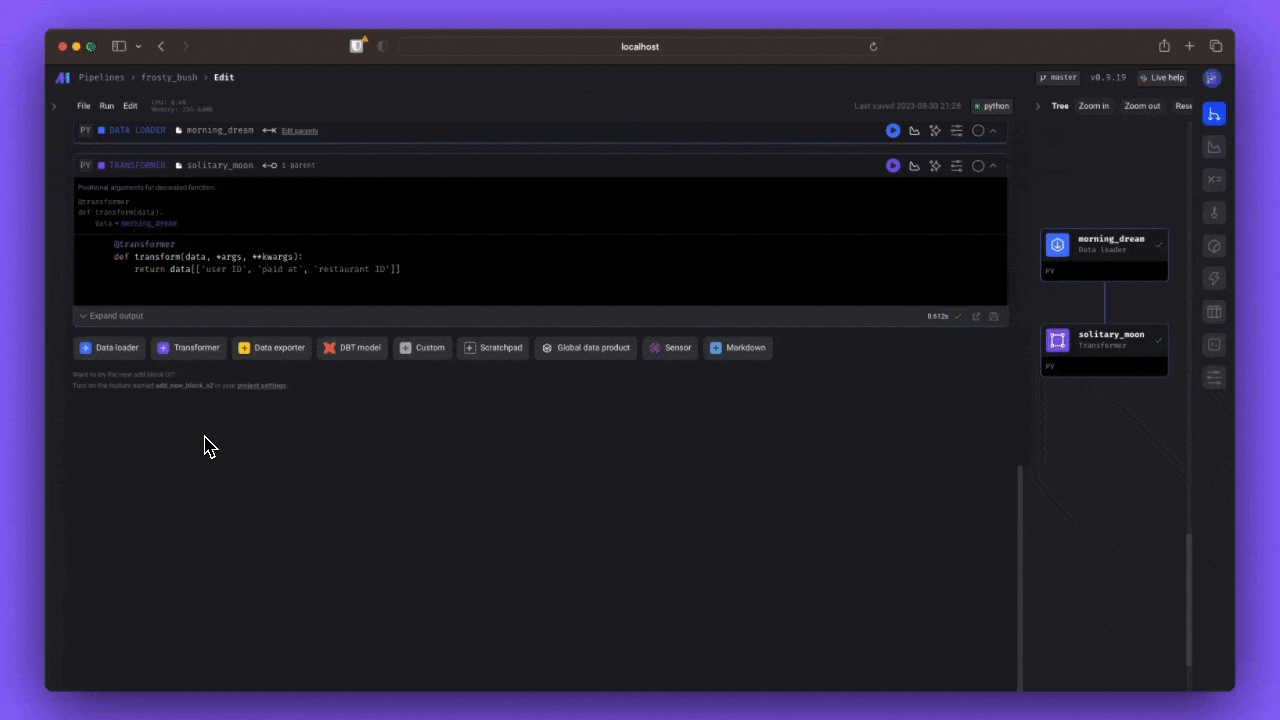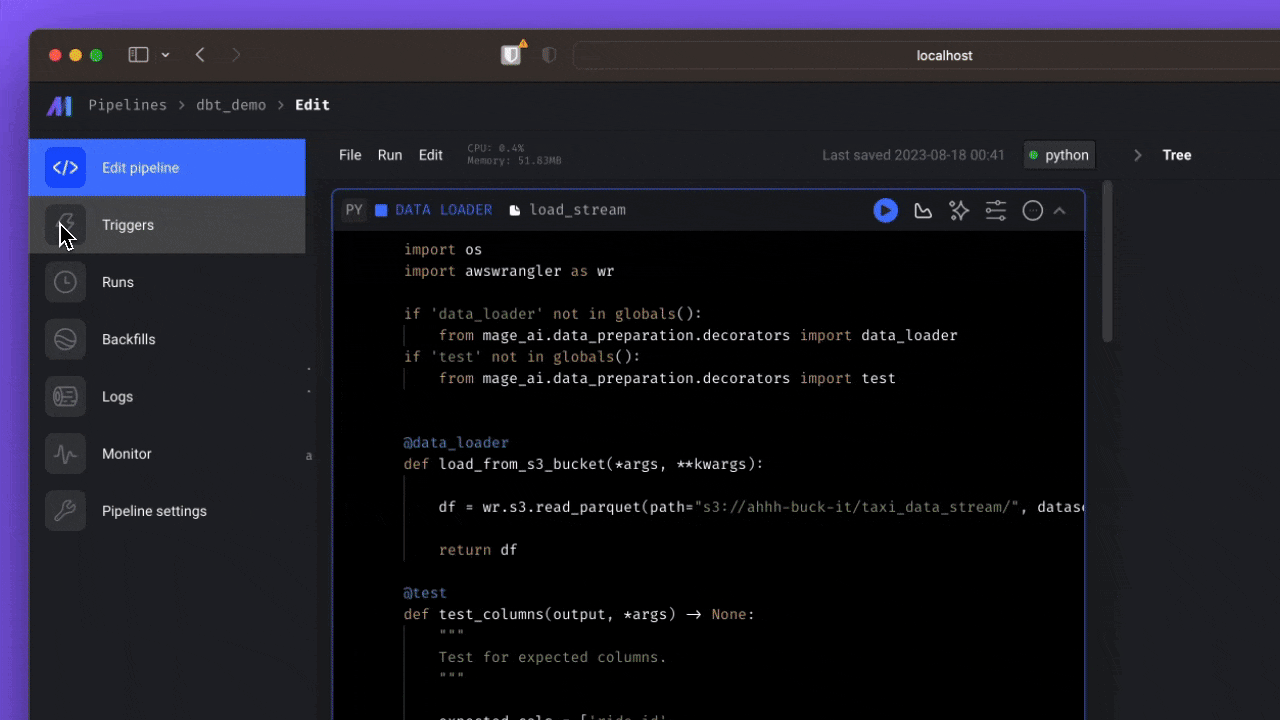
A modern replacement for Airflow.
Documentation Get a 5 min overview Play with live tool Get instant help
Integrate and synchronize data from 3rd party sources
Build real-time and batch pipelines to transform data using Python, SQL, and R
Run, monitor, and orchestrate thousands of pipelines without losing sleep
1⃣ Build
Have you met anyone who said they loved developing in Airflow?
That’s why we designed an easy developer experience that you’ll enjoy.
- Easy developer experience: Start developing locally with a single command or launch a dev environment in your cloud using Terraform.
- Language of choice: Write code in Python, SQL, or R in the same data pipeline for ultimate flexibility.
- Engineering best practices built-in: Each step in your pipeline is a standalone file containing modular code that’s reusable and testable with data validations. No more DAGs with spaghetti code.

2⃣ Preview
Stop wasting time waiting around for your DAGs to finish testing.
Get instant feedback from your code each time you run it.
- Interactive code: Immediately see results from your code’s output with an interactive notebook UI.
- Data is a first-class citizen: Each block of code in your pipeline produces data that can be versioned, partitioned, and cataloged for future use.
- Collaborate on cloud: Develop collaboratively on cloud resources, version control with Git, and test pipelines without waiting for an available shared staging environment.

3⃣ Launch
Don’t have a large team dedicated to Airflow?
Mage makes it easy for a single developer or small team to scale up and manage thousands of pipelines.
- Fast deploy: Deploy Mage to AWS, GCP, or Azure with only 2 commands using maintained Terraform templates.
- Scaling made simple: Transform very large datasets directly in your data warehouse or through a native integration with Spark.
- Observability: Operationalize your pipelines with built-in monitoring, alerting, and observability through an intuitive UI.

Installation
The recommended way to install the latest version of Mage is through Docker with the following command:
docker pull mageai/mageai:latestYou can also install Mage using pip or conda, though this may cause dependency issues without the proper environment:
pip install mage-aiconda install -c conda-forge mage-aiLooking for help? The fastest way to get started is by checking out our documentation here. Looking for quick examples? Open a demo project right in your browser or check out our guides.
Troubleshooting
- If you encounter any problems during installation, ensure that your Docker setup is correct and that you’re using the latest version.
- For dependency issues with pip or conda, consider creating a virtual environment to isolate your setup.
- Check log files for error messages which can provide clues to fix problems.
For more insights, updates, or to collaborate on AI development projects, stay connected with fxis.ai.
At fxis.ai, we believe that such advancements are crucial for the future of AI, as they enable more comprehensive and effective solutions. Our team is continually exploring new methodologies to push the envelope in artificial intelligence, ensuring that our clients benefit from the latest technological innovations.







